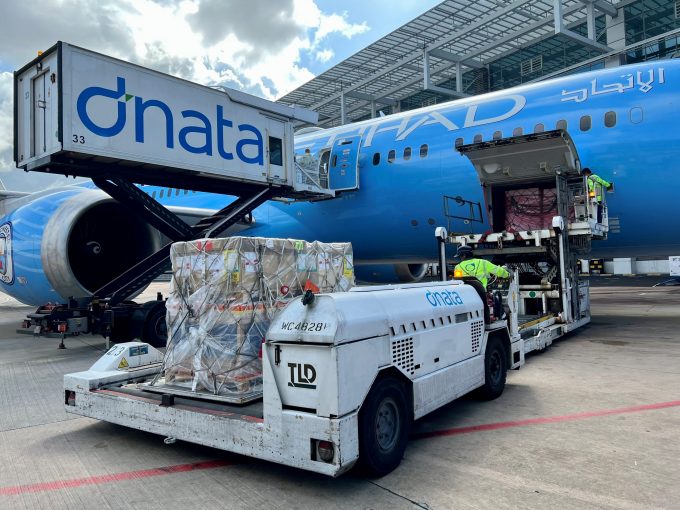TL;DR:
- Etihad Cargo trials showcase AI’s impact on air cargo services.
- AI adoption focuses on customs, route optimization, and inventory management.
- AI-powered robots enhance efficiency and cargo security.
- AI chatbots improve communication and customer satisfaction.
- Etihad partners with Speedcargo to maximize cargo capacity using AI.
- Speedcargo’s Cargo Eye and Assemble solutions streamline cargo handling.
- Challenges include data accuracy, upfront investment, and data privacy.
Main AI News:
In the fast-paced world of air cargo services, recent trials at Etihad Cargo have showcased the transformative power of AI technology. These trials are paving the way for broader adoption of AI-powered solutions, despite the persistent challenges that the industry faces. For cargo operators and handlers, AI holds promise in key areas such as customs and compliance, route optimization, and inventory management.
One of the exciting prospects is the integration of AI-powered robots into cargo handling processes. These robots have the potential to significantly reduce turnaround times and labor costs by expediting loading and unloading procedures. Furthermore, they enhance cargo security through real-time monitoring of potential threats in aprons and warehouses.
Innovation in customer service is also on the horizon, as AI-compatible chatbots and service systems have demonstrated the ability to provide real-time updates to shippers and consignees. This not only streamlines communication but also boosts customer satisfaction.
Etihad Cargo’s recent commitment to maximizing cargo capacity using AI is a testament to its potential. Partnering with Singapore-based tech startup, Speedcargo, Etihad integrated AI solutions such as Cargo Eye and Assemble into its operations. These solutions utilize advanced 3D technology to capture precise cargo dimensions, volume data, images, and labels. Assemble then creates a digital plan, guiding cargo handling teams in building optimal pallets. This combined effort not only maximizes cargo capacity but also improves efficiency and sustainability.
Krishna Kumar Nallur, CEO of Speedcargo, emphasizes that these AI-powered solutions are a game-changer for Etihad Cargo. They enable capacity optimization across the airline’s fleet and digitize cargo handling, thereby boosting productivity.
While Singapore’s Changi facility became the first station to embrace AI tools, dnata and Speedcargo have ambitious plans to extend this technology to other stations. Dnata, a key player at Changi, serves 50 airlines and manages approximately 250,000 tonnes of cargo annually.
In addition to its collaboration with Speedcargo, Etihad Cargo has explored Amplifi, another AI tool. Amplifi dynamically calculates free and usable capacity based on booked cargo, aircraft type, and cargo offers. This system-generated load plan minimizes the risk of overbookings while maximizing freight load.
Despite these promising advancements, challenges remain. AI solutions rely heavily on data accuracy, which can be problematic in industries with fragmented data sources like air cargo. Additionally, implementing new technologies entails significant upfront investments in infrastructure and skilled personnel. Smaller cargo operators and handlers may face hurdles in allocating resources for AI adoption. Moreover, handling sensitive cargo and customer data necessitates robust data privacy and security measures, emphasizing the importance of compliance with data protection laws.
Conclusion:
The successful integration of AI in Etihad Cargo’s operations highlights the transformative potential of AI in the air cargo market. Despite challenges, the industry’s adoption of AI promises increased efficiency, productivity, and customer satisfaction, positioning it for future growth and competitiveness.

